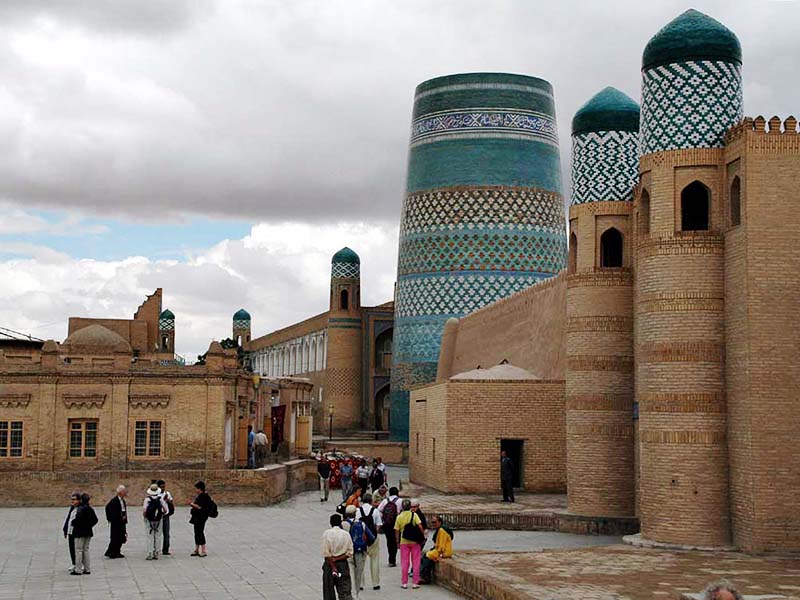Christians in Former-Soviet Central Asian Nations Increasingly Face Persecution

6/12/2025 Central Asia (International Christian Concern) — Formerly part of the USSR, the five “stan” countries — Kazakhstan, Kyrgyzstan, Tajikistan, Turkmenistan, and Uzbekistan — have a mix of ex-Soviet authoritarianism and Islamic nationalism that can be troublesome and even dangerous to Christians.
The region has seen increasing repression of religious minorities during the last few years. Three of these five countries — Kazakhstan, Kyrgyzstan, and Tajikistan — have seen a sharp rise in the persecution rankings. Even the comparatively less repressive nation of Kyrgyzstan has just this year returned to the Open Doors Top 50 list for the first time in more than a decade.
Kyrgyzstan has used special operations police to raid state-registered Protestant and Catholic churches and threatened to banish the entire Catholic Church from the country.
Kyrgyzstan unfurled a new constitution in 2021 that, among other things, criminalized many forms of public assembly. That same year, Kyrgyzstan also emerged with a new religion law that made it more difficult to establish or sustain churches.
Earlier this year, Kyrgyzstan began operating under an updated religion law that puts even more severe restrictions on establishing churches and punishes mosques that fail to conform to the many demands of state authorities.
Among the new requirements is having a minimum of 500 adult Kyrgyzstan nationals who belong to the church or other house of worship. If any of those 500 people are deemed ineligible, then the whole application fails.
Fariza Gulomikova, a Muslim-background believer who converted to Christianity at age 11 while still living in her native Tajikistan, said that it has become harder to be a Christian in former-Soviet majority-Muslim countries.
Her homeland has made it impossibly difficult to register new Protestant churches, thereby forcing any such churches into breaking the law by their very existence.
Gulomikova, who immigrated to the U.S. at age 18 and now lives in New York, said that the officially registered Baptist church she used to attend in the Tajik capital city of Dushanbe had a church camp that was confiscated by the government.
“The government seized the property and built vacation homes for the president’s family,” she said. “It was at that church camp where I found my faith, along with many others.”
On a more directly violent level, a pastor from her church was targeted while on the grounds of a religious sanctuary. “We had a small location up north, and one day, armed men came in and shot him,” she said.
Most of the anti-Christian persecution in the region is directed toward Protestant churches. Even though most Christians in the region are Russian Orthodox, the followers of that religion largely avoid persecution. This is because the Russian Orthodox Church has a longstanding regional presence, most of its members are ethnic Russians, and they typically make no attempts to evangelize.
“Protestant denominations are often seen as Westernizing influences and have connections with evangelical churches in America,” Gulomikova said. “They are perceived as a threat.”
Protestant churches in the region often find themselves in a cycle of surveillance, extortion, threats, raids, and arrests. As one might expect, converts typically encounter the most intense persecution. They could easily face banishment, or, in the opposite form of mistreatment, their families might imprison them.
In rural Kazakhstan, authorities often pressure Christian business owners to pay bribes. Meanwhile, in neighboring Turkmenistan, a network of secret police and imams is primed and ready to flush out anyone partaking in aberrant religious activity.
For much of the 20th century, religion of any sort was suspect in this part of the world. When the Soviet Union dissolved in 1991, the region became heavily secular after decades of godless propaganda.
Gulomikova’s homeland of Tajikistan soon descended into a five-year civil war. But by the end of the 1990s, Tajiks started embracing Islam more.
“Sunni Islam, particularly the Hanafi school, became more widespread,” she said. “People started praying more, attending mosques, women began to wear veils, men grew beards and wore Islamic attire, and children started attending Islamic schools.”
Such developments were seen to varying degrees across the five countries comprising former Soviet Central Asia. These governments can also crack down severely on radical Muslims because they, too, are seen as a threat by the existing powers.
Gulomikova said that the government of Tajikistan is afraid of its society becoming too radicalized and ending up like neighboring Afghanistan. She also said that Tajikistan maintains close ties to Russia, “and to preserve this strategic relationship, the government strives to uphold a secular Muslim identity.”
“However, within Tajik society, many people are unhappy with these restrictions,” she added. In places like Tajikistan, though, such unhappiness with the government is almost always expressed privately.
Like any good post-Soviet regime, Tajikistan uses significant cyber surveillance.
“They have banned certain social media platforms in the past,” Gulomikova said. “The Tajik government has imprisoned online influencers and journalists for their social media posts. If someone posts something negative about the government, there are consequences.”
She added that a 28-year-old journalist and mother of two was recently sentenced to eight years in prison without any charges.
In a region where old Soviet habits die hard and religious animosities live easy, human rights can be elusive even for members of the Muslim majority. For Christians, those rights can vanish without a trace.
To read more news stories, visit the ICC Newsroom. For interviews, please email [email protected].
